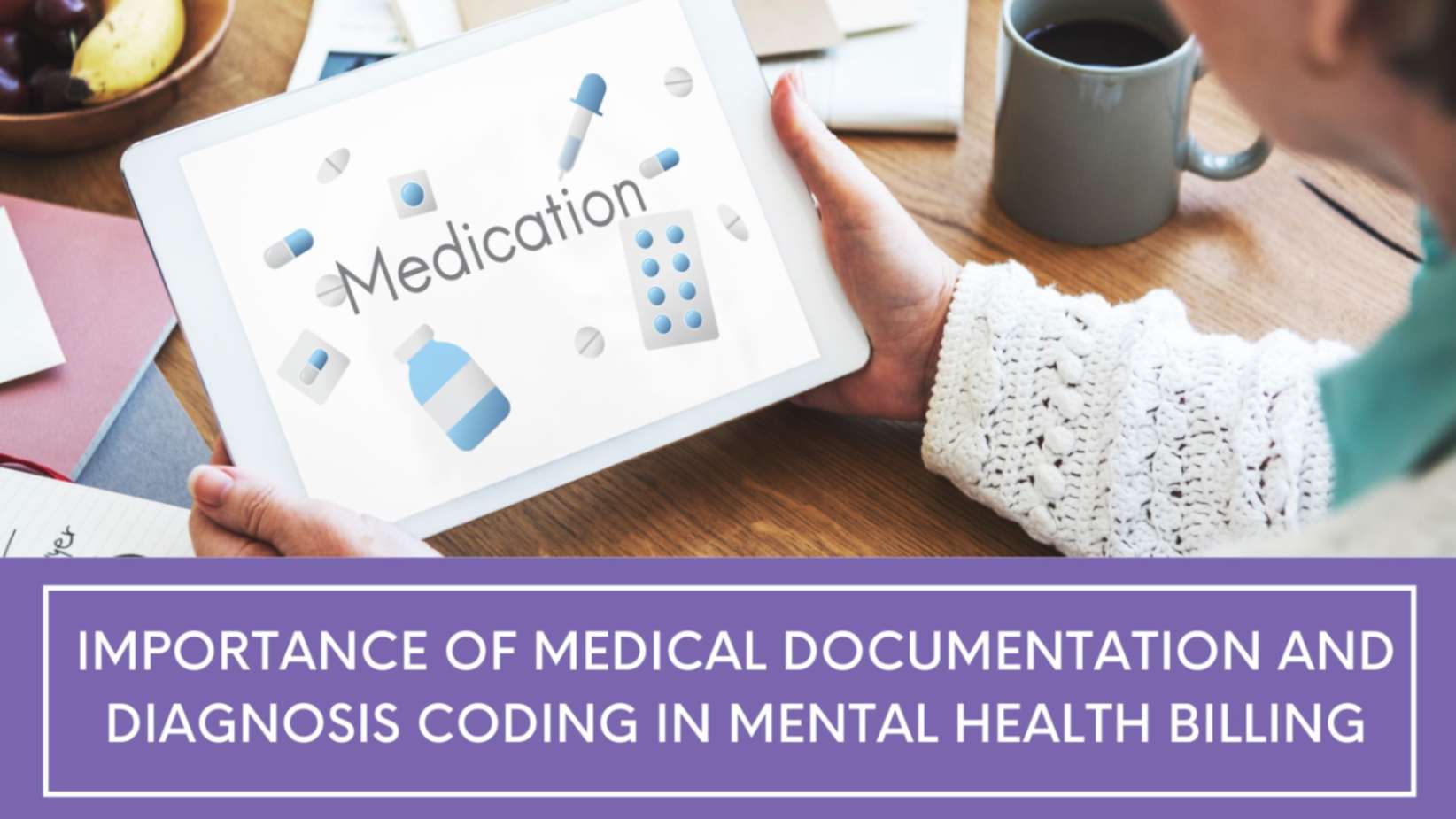Importance of Medical Documentation and Diagnosis Coding in Mental Health Billing
Mental health billing is a complex process as mental health treatments and services encompass a broad range of coding and procedural components that are distinctive and hence ensuring smooth mental health billing is a rather intricate process than a simple one.
If errors occur in the mental health billing system, it hinders the entire process flow. These errors could be due to inaccuracy in documentation, errors in coding, or such. This will only result in delayed reimbursements or non-payments.
Not just that, the mental health practice that handles the billing process will be prone to take longer times for billing operations and risk inefficiencies without streamlined process flow. Mental health billing comprises extensive filing and claims submission that requires quite a lot of manual energy and time. This will in turn have a major impact on the practice’s ability to deliver enhanced patient care.
Medical Record Documentation and Coding are two critical aspects where practices cannot afford to make mistakes at any point.
Table of Contents
What is the importance of medical documentation?
As mentioned, the medical records are the basic scripts from which coders assign appropriate diagnoses and procedure codes to reflect treatments and procedures rendered. If the payer identifies any slipup in the process, the submitted claims might get rejected. All the information associated with the patient visit, treatments, medication, procedures, duration of the visit, and therapy etc. must be adequately recorded. The proper documentation also helps in accurate capturing of the diagnosis and procedure codes, thereby giving more clarity to the claims. Hence, documenting notes properly is a crucial part of the communication process.
The medical record documentation must be up-to-date, and accurate. Listed below are a few must have details of a medical record:
- Reason for treatment, physical and mental health history of the patient.
- Previous diagnoses and test outcomes.
- Physical examination, evaluation, and patient’s clinical impression.
- Determining the factors that pose a health risk.
- Patient’s treatment strategy.
- Patient’s progress and response to therapy.
- Emotional/behavioral assessment tools with scores.
- Diagnosis updates and revisions, if any.
- Duration of the visit and time spent in therapy.
- Mental health provider’s name, credentials, signature, and date.
It is no doubt that medical documentation is a complex process, but it is indisputable to aggregate all the relevant and valuable patient information in order to ensure effective reimbursements.
The need for effective Coding
The ICD and CPT codes help identify the diagnoses, treatments, and services rendered to the patient. These codes are the most crucial elements for the billing process as they decide the fee corresponding to the visit. They also help the insurance companies to come to a decision on reimbursements, and whether the patient is qualified for the insurance coverage for the services rendered.
If the mental health coder makes a mistake or uses the wrong code, the treatment rendered might not get reimbursed. Not just that, rectifying this mistake and sending out a corrected claim is even more complex process that takes up quite a lot of time.
What makes mental health billing complicated?
There are various areas that make mental health billing really complicated. To make it plainer, let us consider routine physical check-ups by medical health physicians. These routines usually include measurement of blood pressure, heart rate, weight, height, blood tests, and such which are all pretty much standard for most specialties. This makes it comparatively easy for medical health billers and coders to code and process the bills that correspond to the standard charges. However, this isn’t the case for mental health billing as there are several aspects to mental health diagnosis. Coding and billing may be impacted by the duration of a session, the location of the services, the treatment strategy, the age of the patient, and their desire to cooperate. The providers find this very frustrating as it becomes more challenging to deliver standard treatment and procedure for all.
Insurance companies from their end at the moment have taken initiatives to standardize charges for treatment duration, treatments, number of treatments covered etc.
Some insurance plans require prior authorization for mental health services and in these cases the mental health practice might also find the billing process frustrating as the billing process gets prolonged and the reimbursements might get really delayed or even rejected. Another factor that adds to the complexity is the lack of effective resources. When mental health practices do not possess the required personnel for smooth billing, unintentional errors occur which also burdens the other staff and physicians.
Practolytics offers streamlined medical coding and billing process for mental health practices so that they need not submerge themselves in the entire process and have more time for their patients.
Reach out to us to learn more!
ALSO READ – 6 Essential Billing Practices for Mental and Behavioral Health
Talk to Medical Billing Expert Today — Get a Free Demo Now!






